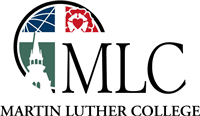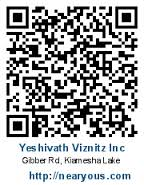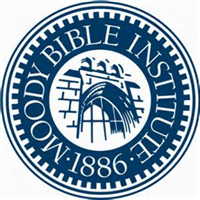What do they do?
Conduct religious worship and perform other spiritual functions associated with beliefs and practices of religious faith or denomination. Provide spiritual and moral guidance and assistance to members.
Also known as:
Bishop, Catholic Priest, Chancellor, Chaplain, Children's Minister, Children's Pastor, College Chaplain, Confessor, Congregational Care Pastor, Evangelist, Minister, Ministry Pastor, Parish Priest, Pastor, Priest, Rabbi, Rector, Reverend, Vicar, Worship Pastor, Youth Minister, Youth Pastor
-
0.6%
Change
Ranks #39 in job growth rate1,610Job Openings
Ranks #4 in net job growth
Looking for colleges that offer a specific major? Use the College Match Tool to find your best-matched schools and discover your estimated Net Price!
- Master's degree (36%)
- Bachelor's degree (26%)
- Doctorate or Professional Degree (14%)
- Some college, no degree (11%)
- High school diploma equivalent (6%)
- Associate's degree (4%)
- Less than high school diploma (2%)
Most Popular Majors that prepare Clergy
-
#1
-
Degrees Granted
1,196
-
Female Students
401
-
Male Students
795
-
Median Starting Salary
$34,900
-
-
#2
-
Degrees Granted
582
-
Female Students
219
-
Male Students
363
-
Median Starting Salary
$34,900
-
-
#3
-
Degrees Granted
414
-
Female Students
178
-
Male Students
236
-
Median Starting Salary
$34,900
-
-
#4
-
Degrees Granted
353
-
Female Students
149
-
Male Students
204
-
Median Starting Salary
$32,900
-
-
#5
-
Degrees Granted
344
-
Female Students
137
-
Male Students
207
-
Median Starting Salary
$32,900
-
People in this career often have these skills:
- Speaking - Talking to others to convey information effectively.
- Active Listening - Giving full attention to what other people are saying, taking time to understand the points being made, asking questions as appropriate, and not interrupting at inappropriate times.
- Social Perceptiveness - Being aware of others' reactions and understanding why they react as they do.
- Instructing - Teaching others how to do something.
- Service Orientation - Actively looking for ways to help people.
- Reading Comprehension - Understanding written sentences and paragraphs in work-related documents.
- Writing - Communicating effectively in writing as appropriate for the needs of the audience.
- Persuasion - Persuading others to change their minds or behavior.
- Judgment and Decision Making - Considering the relative costs and benefits of potential actions to choose the most appropriate one.
- Time Management - Managing one's own time and the time of others.
- Critical Thinking - Using logic and reasoning to identify the strengths and weaknesses of alternative solutions, conclusions, or approaches to problems.
- Active Learning - Understanding the implications of new information for both current and future problem-solving and decision-making.
- Coordination - Adjusting actions in relation to others' actions.
- Negotiation - Bringing others together and trying to reconcile differences.
- Complex Problem Solving - Identifying complex problems and reviewing related information to develop and evaluate options and implement solutions.
- Learning Strategies - Selecting and using training/instructional methods and procedures appropriate for the situation when learning or teaching new things.
- Monitoring - Monitoring/Assessing performance of yourself, other individuals, or organizations to make improvements or take corrective action.
- Management of Personnel Resources - Motivating, developing, and directing people as they work, identifying the best people for the job.
People in this career often know a lot about:
- Philosophy and Theology - Knowledge of different philosophical systems and religions. This includes their basic principles, values, ethics, ways of thinking, customs, practices, and their impact on human culture.
- English Language - Knowledge of the structure and content of the English language including the meaning and spelling of words, rules of composition, and grammar.
- Administration and Management - Knowledge of business and management principles involved in strategic planning, resource allocation, human resources modeling, leadership technique, production methods, and coordination of people and resources.
- Customer and Personal Service - Knowledge of principles and processes for providing customer and personal services. This includes customer needs assessment, meeting quality standards for services, and evaluation of customer satisfaction.
- Education and Training - Knowledge of principles and methods for curriculum and training design, teaching and instruction for individuals and groups, and the measurement of training effects.
- Therapy and Counseling - Knowledge of principles, methods, and procedures for diagnosis, treatment, and rehabilitation of physical and mental dysfunctions, and for career counseling and guidance.
- Communications and Media - Knowledge of media production, communication, and dissemination techniques and methods. This includes alternative ways to inform and entertain via written, oral, and visual media.
- Psychology - Knowledge of human behavior and performance; individual differences in ability, personality, and interests; learning and motivation; psychological research methods; and the assessment and treatment of behavioral and affective disorders.
- Sociology and Anthropology - Knowledge of group behavior and dynamics, societal trends and influences, human migrations, ethnicity, cultures, and their history and origins.
- Personnel and Human Resources - Knowledge of principles and procedures for personnel recruitment, selection, training, compensation and benefits, labor relations and negotiation, and personnel information systems.
- Administrative - Knowledge of administrative and office procedures and systems such as word processing, managing files and records, stenography and transcription, designing forms, and workplace terminology.
- Public Safety and Security - Knowledge of relevant equipment, policies, procedures, and strategies to promote effective local, state, or national security operations for the protection of people, data, property, and institutions.
People in this career often have talent in:
- Speech Clarity - The ability to speak clearly so others can understand you.
- Oral Expression - The ability to communicate information and ideas in speaking so others will understand.
- Oral Comprehension - The ability to listen to and understand information and ideas presented through spoken words and sentences.
- Written Comprehension - The ability to read and understand information and ideas presented in writing.
- Written Expression - The ability to communicate information and ideas in writing so others will understand.
- Problem Sensitivity - The ability to tell when something is wrong or is likely to go wrong. It does not involve solving the problem, only recognizing that there is a problem.
- Deductive Reasoning - The ability to apply general rules to specific problems to produce answers that make sense.
- Inductive Reasoning - The ability to combine pieces of information to form general rules or conclusions (includes finding a relationship among seemingly unrelated events).
- Speech Recognition - The ability to identify and understand the speech of another person.
- Fluency of Ideas - The ability to come up with a number of ideas about a topic (the number of ideas is important, not their quality, correctness, or creativity).
- Originality - The ability to come up with unusual or clever ideas about a given topic or situation, or to develop creative ways to solve a problem.
- Information Ordering - The ability to arrange things or actions in a certain order or pattern according to a specific rule or set of rules (e.g., patterns of numbers, letters, words, pictures, mathematical operations).
- Selective Attention - The ability to concentrate on a task over a period of time without being distracted.
- Near Vision - The ability to see details at close range (within a few feet of the observer).
People in this career often do these activities:
- Lead classes or community events.
- Counsel clients or patients regarding personal issues.
- Visit individuals in their homes to provide support or information.
- Train staff members in social services skills.
- Develop educational programs.
- Interpret cultural or religious information for others.
- Intervene in crisis situations to assist clients.
- Develop promotional strategies for religious organizations.
- Manage organizational or program finances.
- Refer clients to community or social service programs.
- Plan conferences, programs, or special events.
This page includes data from:

 Occupation statistics: USDOL U.S. Bureau of Labor Statistics Occupational Employment Statistics
Occupation statistics: USDOL U.S. Bureau of Labor Statistics Occupational Employment Statistics
 Videos: CareerOneStop, USDOL/ETA and the Minnesota Department of Employment & Economic Development
Videos: CareerOneStop, USDOL/ETA and the Minnesota Department of Employment & Economic Development








